The First Five Money Moves to Make While Living Abroad
By Chad Creveling, CFA, & Peggy Creveling, CFA
Living overseas or pursuing your career while moving from country to country can be exciting and filled with adventure, but it can also add several layers of complexity to your financial affairs.
There are some basic financial steps worth taking that you might not think of before becoming an expat. Even if you're assisted by your company's HR department, the added complexity can make day-to-day money management and long-term financial planning a time-consuming and often overwhelming burden.
Below are a few tips to help simplify the management of your finances, save time, and remove some of the stress so that you can focus on the more enjoyable aspects of expat life.
1. Limit the Number of Financial Accounts
Many expats get into the habit of collecting bank, investment, and credit card accounts as they move from country to country, as well as maintaining accounts in their home country. It can soon become an overwhelming task to keep up with it all.
Limiting the number of accounts you maintain will make managing your finances easier. Start with a global brokerage account (or for Americans, a U.S. brokerage account that will work with expats) to hold your investments. Next, open a premier account at one of the international banks serving the offshore marketplace to meet your commercial banking needs. If you maintain property in your home country or a third country, you may also need to hold an account in that country to collect income and pay expenses.
2. Get a Local Credit Card
If you earn a salary in local currency and can maintain the discipline of paying off your balance each month, then having access to a local currency credit card can make sense.
The card allows you to avoid the foreign exchange charges and international transaction fees that typically come with a home currency credit card. To get a local currency credit card, you may need to show greater proof of your credit worthiness than in your home country (granting banks worry that foreigners could disappear without paying). An easier option, but with fewer benefits, is a local currency debit card, which functions like an electronic check with funds drawn immediately from your bank account.
3. Get an Online Brokerage Account
Using an online brokerage to hold your investments will allow you to manage and access your investments in one account, rather than having them scattered over a number of bank accounts and investments.
Look for a broker who will provide you with a greater range of investment products at a significantly cheaper cost than your commercial bank or the insurance-linked savings/investment plans that are heavily marketed offshore.
For Americans, the best bet will be a U.S.-based discount broker to avoid the tax complications of holding non-U.S. domiciled investment products. For non-Americans, look for a global discount broker in an offshore jurisdiction that doesn't tax nonresidents.
4. Maintain Joint Accounts
There are exceptions, but generally both spouses should have access to the main household financial accounts to ease financial management and to handle any emergencies. If accounts have to be individually owned, consider giving your spouse a power of attorney over the account.
To preserve a degree of financial independence and marital bliss, each spouse can maintain an individual bank account for discretionary spending.
5. Use personal finance software to track spending
It’s easy to lose financial perspective when living overseas and operating in a different currency. Tracking your finances using a multi-currency personal financial planning software program like Quicken can be invaluable. When you have clear information on your saving and spending, you can make good decisions so that you achieve financial success over the long run and avoid running out of money. If needed, consider taking an online Quicken course to learn the program.
This list is clearly not exhaustive, and many expats have come up with a number of creative ways to simplify life overseas. Use this as a start and add your own.
This article is a revised and updated version of one that had appeared previously on www.crevelingandcreveling.com
About Creveling & Creveling Private Wealth Advisory
Creveling & Creveling is a private wealth advisory firm specializing in helping expatriates living in Thailand and throughout Southeast Asia build and preserve their wealth. The firm is a Registered Investment Adviser with the U.S. SEC and is licensed and regulated by the Thai SEC. Through a unique, integrated consulting approach, Creveling & Creveling is dedicated to helping clients cut through the financial intricacies of expat life, make better decisions with their money, and take the steps necessary to provide a more secure future.
Copyright © 2022 Creveling & Creveling Private Wealth Advisory, All rights reserved. The articles and writings are not recommendations or solicitations, and guest articles express the opinion of the author; which may or may not reflect the views of Creveling & Creveling.

